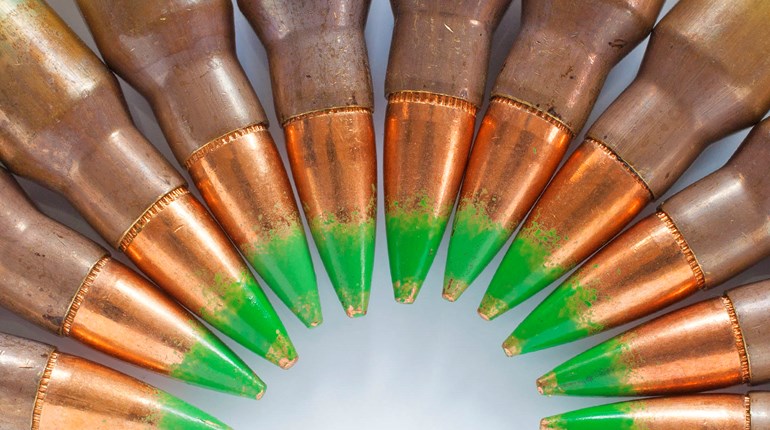
Driving west out of Erbil, it took our three-vehicle armored convoy an hour to reach Bashiqa. The Kurd-controlled town looks very much like the set of a post-apocalyptic movie. Eerily silent and devoid of life, its homes and businesses lay in shattered ruins, scarred by bullet holes. Even now, IEDs are everywhere—we were strictly warned not to step off the road or enter any buildings. Even if it were possible to dodge the IEDs, there are so many booby traps here that it will likely take years to render the area safe for human habitation. Tens of thousands of civilians, caught in the teeth of the battle, are fleeing across the desert seeking safety. When it’s all over, it is estimated that there will be up to a million of these refuge seekers. Soldiers remaining in the area are finding mass graves with hundreds of corpses.
Iraq is a mess. That’s all there is to it.
Why? Whose fault is it? Will it ever be something other than a powder keg of hatred and despair? These are complicated questions. When the United States pulled out in 2012, we left a huge power vacuum in a part of the world where the strong horse commands respect and the weak one gets treated like the too-hairy fat guy at the beach wearing a speedo—nobody wants to see him.
It’s not a “golden rule” kind of culture. It’s a “you killed my father, prepare to die” kind of culture.
There are lots of powerful, important and intense things happening in America right now, and they receive the lion’s share of the news you see. Between the elections, social unrest and Kanye’s latest meltdown, one can be excused from not understanding the finer points of what’s happening in the Middle East. If you’ve seen any news out of Iraq recently, it’s probably been little more than the fact that the Iraqi government finally got its act together and decided to take back their second largest city, Mosul, from ISIS.… what is happening in Iraq today could profoundly affect America—and you—for generations to come.
But there’s so much more to that story. And what is happening in Iraq today could profoundly affect America—and you—for generations to come.
We’ve known this fight was coming for some time. In fact, the Iraqi government named the battle “Operation We Are Coming.” It’s an appropriate title as far as it goes, but they could just as accurately have named it “Operation Better Late Than Never,” or “Operation Awkward: Regain That Which We Abandoned”
Yeah, I guess that’d be too long for the operations reports.
Anyway, given the recent volatility at home, it’s understandable if you don’t know your Sunni from your Shia, or which branch of Islam is allied with Iran. Or which group wants to form its own country, and which nation has over a dozen generals in country to “advise and assist.” Suffice it to say the battle is not just between the good guys and the bad guys—it’s more like fifty shades of grave.
The fight for Mosul began back in October. The Iraqi government has been planning and preparing for it for two years, ever since their army ran away and left a city of 2 million at the mercy of a few thousand ISIS fighters, effectively handing the terrorist group their second largest city, including hundreds of millions in cash in Mosul’s banks and huge stockpiles of military equipment, weapons and ammo. Which was just dandy.
Our NRATV team arrived in Erbil a month after the battle began, as the Iraqis had only just reached the city limits. In the north, the Kurdish Peshmerga had pushed south and retaken all Kurdish lands which were controlled by ISIS. We first visited the Kurdish front, starting in Bashiqa and documenting the destruction there before pushing further west to the Kurdish front line. There we visited a refugee collection point—one of many places those displaced by the fighting in Mosul are risking their lives to get to. Hundreds of Internally Displaced Persons (IDPs) are arriving at this desolate outpost every day, some in vehicles but many on foot, bringing all they could carry when they escaped from ISIS. Many are accompanied by herds of sheep, as scraggly as the people who own them—and without a tree, shrub or a green blade of grass as far as the eye can see, one has to wonder if the poor creatures have figured out how to survive on dirt.
Obama has spent the past five years campaigning on the fact that he “ended the war in Iraq,” so it’s a little awkward … that there are more boots on the ground today than there were in Afghanistan when we defeated the Taliban.Some IDPs we met were wounded. One family had been hit by a coalition airstrike—possibly the result of ISIS employing them as human shields. A 15-year-old girl lost an arm and an eye. She sat holding her side with her remaining hand, moaning in pain. Her father and little brother were also wounded, and her mother had been killed.
The Kurdish soldiers had neither medical supplies nor the skills to use them, so it fell to an American aid organization—which had traveled to the area to distribute food to the refugees—to treat the wounded.
The IDPs squatted with their children on the bare ground and nibbled dates out of the food packets being provided by another American organization, Samaritan’s Purse. I was surprised they didn’t ravenously devour the food they were given; it’s obvious they are accustomed to great hardship and never assume there will be more food later.
People streamed in throughout the day, in groups ranging in size from one family to over a hundred individuals. Brave Peshmerga walked out to meet them in the desert and search the people and their vehicles. Just days earlier, 13 ISIS fighters had hidden themselves among one group and attempted to attack the collection point. All the terrorists were killed, and fortunately, none of the innocents lost their lives. The day we arrived, word had come down to be on alert for a suicide vehicle bomber, so every time a truck came trailing plumes of dust across the desert, things definitely got real.
A village nearby straddled the border between Mosul and Iraqi Kurdistan. We joined the NGO there in a house they had borrowed, and as it got dark we watched red tracers arc across the night sky in both directions. Explosions and rapid gunfire sounded in the distance, and sometimes the not-so-distance. The beleaguered aid workers had been out in the field for weeks. They carried AK-47s for defense, and we all pitched in to stand watch overnight on the rooftop. The supermoon made it almost too bright to sleep anyway.
There are somewhere between 6,000 and 9,000 U.S. troops in Iraq at the moment—the White House doesn’t want you to know exactly how many. President Obama has spent the past five years campaigning on the fact that he “ended the war in Iraq,” so it’s a little awkward to have it known that there are more boots on the ground today than there were in Afghanistan when we defeated the Taliban in 2002. That doesn’t include the tens of thousands of U.S.-paid contractors who are in Iraq filling jobs once done by the military.
The war might have stopped for awhile, but now it’s on again. For U.S. troops on the ground, the rules of engagement are abysmal. If you are shot at, drive away. If you see Iraqi troops in contact with the enemy, phone in your advice and assistance. If wounded show up at your doorstep, arrange transport to an Iraqi hospital, but do not treat them yourself. The squad-level 101st Airborne troopers I spoke with during our trip would gladly have volunteered to parachute into Mosul airport and take the fight to ISIS themselves. They didn’t join the Army to “advise and assist.” These meat-eaters feel like they are being fed a steady diet of don’t-hurt-yourself cabbage.
A few days later, we bluffed our way through an Iraqi Army checkpoint and made it up to the fighting front, which at that point had penetrated Mosul’s eastern neighborhoods. Fighting was house to house, with the Iraqi special forces brigades taking tremendous casualties from snipers and vehicle-borne IEDs. Reserve forces were already being brought into the fight with less than a third of Mosul liberated from the Islamic State.
With the sounds of gunfire nearby, we came upon two Americans who had converted a dusty empty lot behind a building into a makeshift medical aid station. At first we thought they might be U.S. special forces medics, but as it turns out, they work for a tiny Slovakian NGO that provides medical services to the Iraqi army, which is sorely lacking that capability on its own. These two men—one a combat-hardened former U.S. Marine infantryman, the other a pipe fitter from San Diego—had volunteered to come and lend a hand to defeat the Islamic State. That very morning, they had treated more than 30 casualties—most civilians, and many of those, children.
The wounded continued to stream into the aid station where the two brave Americans did their best to stabilize those they could and speed them to better care in the rear, more than 40 minutes away. It was clear talking to them that they were exhausted and cynical about the success of this operation.
There is something surreal about this particular stage of the war. If you want to see combat here, don’t join the U.S. Military. Instead, join an NGO.
What that really means is that the forces that could finish ISIS and end this battle quickly are not being allowed to do so. Into that void comes a whole host of fighting forces, some of whom have objectives in joining the battle that are not likely to lead to a safe, stable Iraq, nor to greater U.S. national security.
Let’s hope a Trump administration will change that.

































